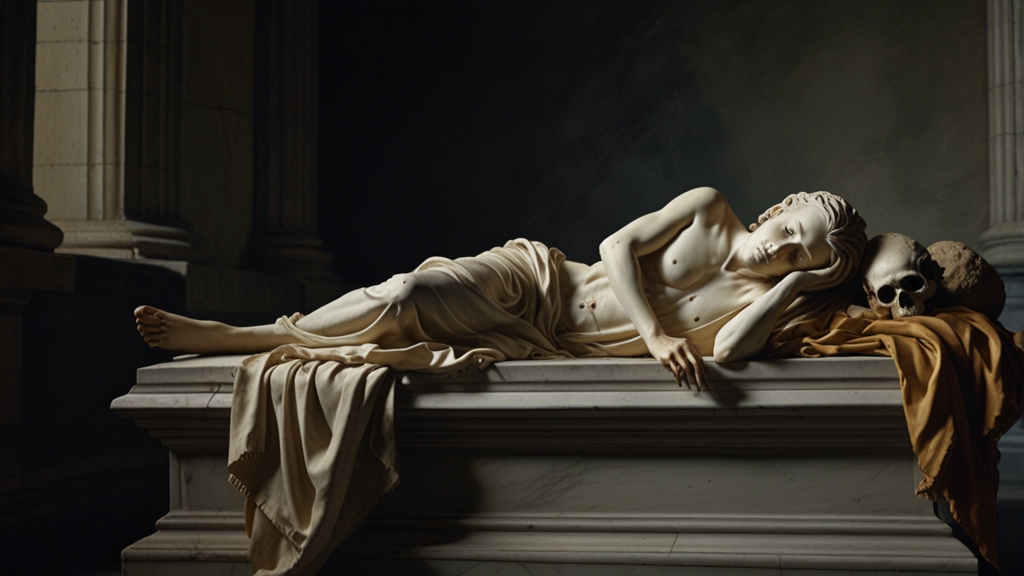The Ultimate Questions: What Philosophy Says About Death
Death is a concept that has haunted humanity since the dawn of time, raising profound questions about the meaning and value of life. Throughout history, philosophers from diverse schools of thought have pondered the ultimate questions surrounding death, offering a range of perspectives that continue to influence contemporary thought. In this article, we will explore what philosophy says about death, drawing insights from existentialism, stoicism, and Eastern philosophies.
Existentialism: The Absurdity and Freedom of Death
Existentialist philosophers like Jean-Paul Sartre and Albert Camus have tackled the subject of death with a sense of urgency and existential angst. For them, death is an inescapable reality that underscores the absurdity of the human condition. Camus, for instance, famously opened his essay "The Myth of Sisyphus" with the assertion that the only true philosophical question is whether or not to commit suicide. This stark perspective invites individuals to confront the meaninglessness of life in the face of inevitable death.
"There is but one truly serious philosophical problem, and that is suicide. Judging whether life is or is not worth living amounts to answering the fundamental question of philosophy." — Albert Camus, "The Myth of Sisyphus"
From an existentialist viewpoint, the inevitability of death can be both paralyzing and liberating. Sartre's concept of "being-toward-death" suggests that the awareness of our mortality can lead us to live more authentic lives. By acknowledging that our time is limited, we are compelled to fill our existence with purpose and authenticity.
Stoicism: Embracing Death with Equanimity
In stark contrast to existentialism, Stoic philosophers like Seneca, Marcus Aurelius, and Epictetus approached death with a sense of calm and acceptance. The Stoic attitude toward death is grounded in the belief that it is a natural part of life and should be met with equanimity. According to Stoicism, fearing death is irrational because it is outside our control and because life and death are simply stages in the natural order.
"It is not death that a man should fear, but he should fear never beginning to live." — Marcus Aurelius, "Meditations"
Stoicism teaches that by accepting the inevitability of death, individuals can free themselves from anxiety and focus on living virtuously. The Stoics practiced "memento mori" — contemplation of death — as a means to remind themselves of the transient nature of life and to prioritize what truly matters. By continually reflecting on death, they believed one could cultivate gratitude and live a life aligned with reason and virtue.
Eastern Philosophies: Cycles and Rebirth
Eastern philosophies offer a different lens through which to view death, often emphasizing cyclical patterns and the continuity of life. In Hinduism and Buddhism, for example, the concepts of reincarnation and karma play a central role. Death is not seen as an end but as a transition to another state of existence, influenced by one's actions in their current life.
Buddhism, in particular, encourages individuals to confront the reality of death through meditative practices and teachings on impermanence (anicca). The Buddha taught that understanding and accepting the impermanent nature of all things is crucial for spiritual liberation (nirvana). By recognizing that death is a part of the endless cycle of birth, death, and rebirth (samsara), individuals can cultivate a sense of detachment and serenity.
"Even death is not to be feared by one who has lived wisely." — Buddha
Conclusion: Diverse Perspectives on Death
Philosophical perspectives on death are as varied as they are profound, offering insights that range from existential despair to stoic acceptance and spiritual transcendence. While existentialists grapple with the absurdity and freedom that awareness of death brings, Stoics embrace it as a natural part of life to be faced with calm and reason. In contrast, Eastern philosophies often see death as a step in a larger, cyclical journey, inviting us to view it with a sense of continuity and meaning.
Ultimately, what philosophy says about death illuminates fundamental truths about human existence, urging us to live with intention, virtue, and wisdom. By contemplating the many philosophical approaches to death, we not only gain deeper insights into our own mortality but also enrich our understanding of what it means to live a meaningful life.








